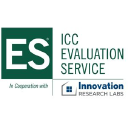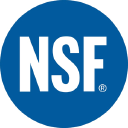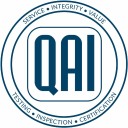EN 14623:2005
(Main)Devices to prevent pollution by backflow of potable water - Air gaps with minimum circular overflow (verified by test or measurement) - Family A, type G
Devices to prevent pollution by backflow of potable water - Air gaps with minimum circular overflow (verified by test or measurement) - Family A, type G
This European Standard specifies the characteristics and the requirements of air gaps with overflow, family A, type G for nominal flow velocity not exceeding 3 m/s. Air gaps are devices for protection of potable water in water installations from pollution. This European Standard applies to air gaps in factory assembled products and to constructed air gaps in situ, and defines the physicochemical characteristics of materials of construction used for the purpose and application to ensure compliance with this document during normal working use.
Sicherungseinrichtungen zum Schutz des Trinkwassers gegen Verschmutzung durch Rückfließen - Freier Auslauf mit kreisförmigem Überlauf mit Mindestdurchmesser (Nachweis durch Prüfung oder Messung) - Familie A, Typ G
Diese Europäische Norm legt die Eigenschaften und Anforderungen für freie Ausläufe mit kreisförmigem Überlauf mit Mindestdurchmesser, Familie A, Typ G, für Nenn-Durchflussgeschwindigkeiten bis 3 m/s fest. Freie Ausläufe sind Sicherungseinrichtungen zum Schutz des Trinkwassers vor Verunreinigungen in Trinkwasser Installationen. Die Norm gilt für freie Ausläufe von fabrikmäßig montierten Bauteilen sowie für vor Ort gebaute freie Ausläufe und definiert die physikalisch-chemischen Eigenschaften der Konstruktionswerkstoffe, die gebrauchstauglich und für den Anwendungszweck geeignet sind, um im normalen Betrieb eine Übereinstimmung mit dieser Norm sicherzustellen.
Dispositifs de protection contre la pollution de l'eau potable par retour - Surverse avec trop-plein (définie par essai de dépression) - Famille A, type G
Naprave za varovanje pred onesnaženjem pitne vode zaradi povratnega toka - Prosti iztok z najmanjšim prelivom krožne oblike (preverjeno s preskusom ali meritvijo) – Družina A, tip G
General Information
- Status
- Published
- Publication Date
- 17-May-2005
- Withdrawal Date
- 29-Nov-2005
- Technical Committee
- CEN/TC 164 - Water supply
- Current Stage
- 9020 - Submission to 2 Year Review Enquiry - Review Enquiry
- Start Date
- 15-Oct-2025
- Completion Date
- 15-Oct-2025
Relations
- Effective Date
- 28-Jan-2026
- Effective Date
- 28-Jan-2026
- Effective Date
- 28-Jan-2026
Overview
EN 14623:2005 - published by CEN - specifies requirements for air gaps with minimum circular overflow (Family A, Type G) used to prevent pollution of potable water by backflow. The standard covers factory-assembled and site‑constructed air gaps for systems with nominal flow velocity up to 3 m/s, defines required tests or measurements for verification, and sets material and marking expectations to ensure safe use in water installations.
Example designation: Air gap, EN 14623, Family A, Type G, DN 15
Keywords: EN 14623:2005, air gaps, backflow prevention, potable water, minimum circular overflow, Family A Type G, CEN, water installations
Key topics and technical requirements
- Scope and application: Applies to air gaps (factory-built and in situ) protecting drinking water installations from pollution by backflow.
- Design principle: Air gap distance A is the vertical space from the lowest point of the feed orifice to the critical water level; the standard defines how to determine the critical level and dimension A.
- Air gap distances (as specified):
- ≤ DN 15 (G½): ≥ 20 mm
- ≤ DN 20 (G¾): ≥ 25 mm
DN 22 (G¾): A = 2 × D
- Overflow arrangements: Overflow internal diameter shall be at least 19 mm and must include an air break to drain (complying with EN 1717 requirements, excluding WCs).
- Verification: Air gaps are verified by test or by measurement. Test procedures require filling at the standard flow rate, closing outlets (except overflow), stopping flow and measuring the water depth after 2 seconds to establish the critical level and then measure A. Measurement is allowed for single supplies (small sizes).
- Materials: Manufacturers must declare materials; materials in contact with drinking water must meet EU/EFTA standards and national acceptance criteria and be compatible with water and potential contaminants.
- Marking & documentation: Factory products must be permanently marked (manufacturer, family/type, DN or D, reference to EN 14623). Technical documentation must include installation guidance to avoid compromising the air gap (e.g., positive pressure backflow).
Applications and users
- Who uses EN 14623: manufacturers of water fittings, plumbing product designers, installation contractors, water utilities, testing laboratories, building services engineers, and regulatory authorities.
- Typical applications: design and selection of air gap devices for tanks, cisterns, service connections and appliances where reliable backflow protection to potable water is required, both for new installations and retrofit/site-built solutions.
Related standards
- EN 1717:2000 - Protection against pollution of potable water in water installations (general requirements and methods referenced throughout EN 14623)
EN 14623:2005 is essential for specifying and verifying compliant air gap solutions to maintain safe drinking water supplies and for product conformity and installation best practice.
Get Certified
Connect with accredited certification bodies for this standard

ICC Evaluation Service
Building products evaluation and certification.

NSF International
Global independent organization facilitating standards development and certification.

QAI Laboratories
Building and construction product testing and certification.
Sponsored listings
Frequently Asked Questions
EN 14623:2005 is a standard published by the European Committee for Standardization (CEN). Its full title is "Devices to prevent pollution by backflow of potable water - Air gaps with minimum circular overflow (verified by test or measurement) - Family A, type G". This standard covers: This European Standard specifies the characteristics and the requirements of air gaps with overflow, family A, type G for nominal flow velocity not exceeding 3 m/s. Air gaps are devices for protection of potable water in water installations from pollution. This European Standard applies to air gaps in factory assembled products and to constructed air gaps in situ, and defines the physicochemical characteristics of materials of construction used for the purpose and application to ensure compliance with this document during normal working use.
This European Standard specifies the characteristics and the requirements of air gaps with overflow, family A, type G for nominal flow velocity not exceeding 3 m/s. Air gaps are devices for protection of potable water in water installations from pollution. This European Standard applies to air gaps in factory assembled products and to constructed air gaps in situ, and defines the physicochemical characteristics of materials of construction used for the purpose and application to ensure compliance with this document during normal working use.
EN 14623:2005 is classified under the following ICS (International Classification for Standards) categories: 13.060.20 - Drinking water; 91.140.60 - Water supply systems. The ICS classification helps identify the subject area and facilitates finding related standards.
EN 14623:2005 has the following relationships with other standards: It is inter standard links to EN 806-5:2012, EN 1717:2025, EN 17962:2024. Understanding these relationships helps ensure you are using the most current and applicable version of the standard.
EN 14623:2005 is available in PDF format for immediate download after purchase. The document can be added to your cart and obtained through the secure checkout process. Digital delivery ensures instant access to the complete standard document.
Standards Content (Sample)
SLOVENSKI STANDARD
01-september-2005
Naprave za varovanje pred onesnaženjem pitne vode zaradi povratnega toka -
Prosti iztok z najmanjšim prelivom krožne oblike (preverjeno s preskusom ali
meritvijo) – Družina A, tip G
Devices to prevent pollution by backflow of potable water - Air gaps with minimum
circular overflow (verified by test or measurement) - Family A, type G
Sicherungseinrichtungen zum Schutz des Trinkwassers gegen Verschmutzung durch
Rückfließen - Freier Auslauf mit kreisförmigem Überlauf mit Mindestdurchmesser
(Nachweis durch Prüfung oder Messung) - Familie A, Typ G
Dispositifs de protection contre la pollution de l'eau potable par retour - Surverse avec
trop-plein (définie par essai de dépression) - Famille A, type G
Ta slovenski standard je istoveten z: EN 14623:2005
ICS:
13.060.20 Pitna voda Drinking water
91.140.60 Sistemi za oskrbo z vodo Water supply systems
2003-01.Slovenski inštitut za standardizacijo. Razmnoževanje celote ali delov tega standarda ni dovoljeno.
EUROPEAN STANDARD
EN 14623
NORME EUROPÉENNE
EUROPÄISCHE NORM
May 2005
ICS 13.060.20; 91.140.60
English version
Devices to prevent pollution by backflow of potable water - Air
gaps with minimum circular overflow (verified by test or
measurement) - Family A, type G
Dispositifs de protection contre la pollution de l'eau potable Sicherungseinrichtungen zum Schutz des Trinkwassers
par retour - Surverse avec trop plein (définie par essai de gegen Verschmutzung durch Rückfließen - Freier Auslauf
dépression) - Famille A, type G mit kreisförmigem Überlauf mit Mindestdurchmesser
(Nachweis durch Prüfung oder Messung) - Familie A, Typ
G
This European Standard was approved by CEN on 25 March 2005.
CEN members are bound to comply with the CEN/CENELEC Internal Regulations which stipulate the conditions for giving this European
Standard the status of a national standard without any alteration. Up-to-date lists and bibliographical references concerning such national
standards may be obtained on application to the Central Secretariat or to any CEN member.
This European Standard exists in three official versions (English, French, German). A version in any other language made by translation
under the responsibility of a CEN member into its own language and notified to the Central Secretariat has the same status as the official
versions.
CEN members are the national standards bodies of Austria, Belgium, Cyprus, Czech Republic, Denmark, Estonia, Finland, France,
Germany, Greece, Hungary, Iceland, Ireland, Italy, Latvia, Lithuania, Luxembourg, Malta, Netherlands, Norway, Poland, Portugal, Slovakia,
Slovenia, Spain, Sweden, Switzerland and United Kingdom.
EUROPEAN COMMITTEE FOR STANDARDIZATION
COMITÉ EUROPÉEN DE NORMALISATION
EUROPÄISCHES KOMITEE FÜR NORMUNG
Management Centre: rue de Stassart, 36 B-1050 Brussels
© 2005 CEN All rights of exploitation in any form and by any means reserved Ref. No. EN 14623:2005: E
worldwide for CEN national Members.
Contents
Page
Foreword .3
Introduction.4
1 Scope .5
2 Normative references .5
3 Terms and definitions.5
4 Designation .6
5 Symbolization.7
6 Materials .7
7 Requirements .7
8 Marking (not required for site constructed products).10
9 Technical documents .10
Foreword
This European Standard (EN 14623:2005) has been prepared by Technical Committee CEN/TC 164 "Water
supply", the secretariat of which is held by AFNOR.
This European Standard shall be given the status of a national standard, either by publication of an identical text or
by endorsement, at the latest by November 2005, and conflicting national standards shall be withdrawn at the latest
by November 2005.
According to the CEN/CENELEC Internal Regulations, the national standards organizations of the following
countries are bound to implement this European Standard: Austria, Belgium, Cyprus, Czech Republic, Denmark,
Estonia, Finland, France, Germany, Greece, Hungary, Iceland, Ireland, Italy, Latvia, Lithuania, Luxembourg, Malta,
Netherlands, Norway, Poland, Portugal, Slovakia, Slovenia, Spain, Sweden, Switzerland and United Kingdom.
Introduction
In respect of potential adverse effects on the quality of water intended for human consumption, caused by the
product covered by this European Standard:
a) this European Standard provides no information as to whether the produce may be used without restriction in
any of the Member state of the EU or EFTA;
b) it should be noted that, while awaiting the adoption of verifiable European criteria, existing national regulations
concerning the use and/or the characteristics of this product remain in force.
1 Scope
This European Standard specifies the characteristics and the requirements of air gaps with overflow, family A,
type G for nominal flow velocity not exceeding 3 m/s. Air gaps are devices for protection of potable water in water
installations from pollution. This European Standard applies to air gaps in factory assembled products and to
constructed air gaps in situ, and defines the physicochemical characteristics of materials of construction used for
the purpose and application to ensure compliance with this document during normal working use.
2 Normative references
The following referenced documents are indispensable for the application of this document. For dated references,
only the edition cited applies. For undated references, the latest edition of the referenced document (including any
amendments) applies.
EN 1717:2000, Protection against pollution of potable water in water installations and general requirements of
devices to prevent pollution by backflow.
3 Terms and definitions
For the purposes of this European Standard, the terms and definitions of EN 1717:2000 and the following apply.
3.1
air gap with overflow family A, type G
permanent and vertical distance between the lowest point of the feed orifice and the critical water level having an
overflow capable of draining the maximum inflow of water under fault condition
NOTE See Figure 1 for the design principle.
Figure 1 — Design principle
3.2
spillover level
leve
...




Questions, Comments and Discussion
Ask us and Technical Secretary will try to provide an answer. You can facilitate discussion about the standard in here.
Loading comments...